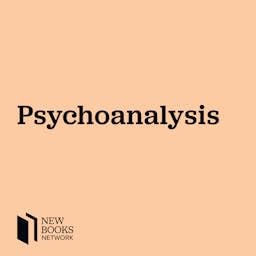Body as Shadow: Jung’s Method of Embodied Healing is Jungian analyst Erica Lorentz’s passionate, clinically grounded argument that Jung’s psychology was never meant to be “head-only.” It was always an embodied practice, one that asks us to meet psyche where it actually lives: in sensation, emotion, energy, imagination, and what Jung called the somatic unconscious or subtle body. At the heart of the book is Lorentz’s central method: embodied active imagination, a way of working in which inward attention to a symptom, sensation, or emotion becomes a portal into imaginal material and archetypal depths, without forcing interpretation or prematurely translating experience into words. This approach is shaped by her long apprenticeship in Authentic Movement (also known as Movement as Active Imagination), where the psyche is allowed to emerge through the body in a protected relational container and a non-directive witnessing stance. Lorentz argues that many modern approaches to trauma and psychotherapy remain constrained by a left-brain bias: we attempt to heal through insight, narrative, and cognitive explanation, while the original wound and the original healing energy often sits below language. Drawing on Jung’s own words from the Zarathustra Seminar, she emphasizes the mysterious interlocking place where body and psyche become indistinguishable: where we cannot know if we are in matter or in psyche, because we are in both. Throughout the book, Lorentz bridges what is too often split in Jungian circles: developmental work and archetypal work. She insists that when we work with complexes, we must come to terms not only with childhood roots, but with the archetypal core “on its own ground”, because the archetype is not a metaphor; it is a force, and one we encounter in a bodily way. Erica Lorentz, M.Ed., L.P.C., is a Jungian analyst (IAAP) and training analyst at the C. G. Jung Institute of New England. With early roots in dance and decades of experience in Authentic Movement (Movement as Active Imagination), she integrates depth psychology with embodied and imaginal approaches to healing. Trained in object relations and shaped by clinical work with autistic and psychotic youth, she has taught and lectured widely on Jung, the body, and embodied active imagination across the US, Canada, the UK, and internationally, including teaching in India in 2024. Helena Vissing, PsyD, SEP, PMH-C is a Licensed Psychologist practicing in California and Associate Professor at California Institute of Integral Studies. She can be reached at contact@helenavissing.com. She is the author of Somatic Maternal Healing: Psychodynamic and Somatic Treatment of Trauma in the Perinatal Period (Routledge, 2023). Learn more about your ad choices. Visit megaphone.fm/adchoices Support our show by becoming a premium member! https://newbooksnetwork.supportingcast.fm/psychoanalysis
Más
Menos
 Feb 25 20261 h y 9 m
Feb 25 20261 h y 9 m 48 m
48 m 1 h y 5 m
1 h y 5 m 1 h y 8 m
1 h y 8 m 50 m
50 m 52 m
52 m 54 m
54 m 49 m
49 m
